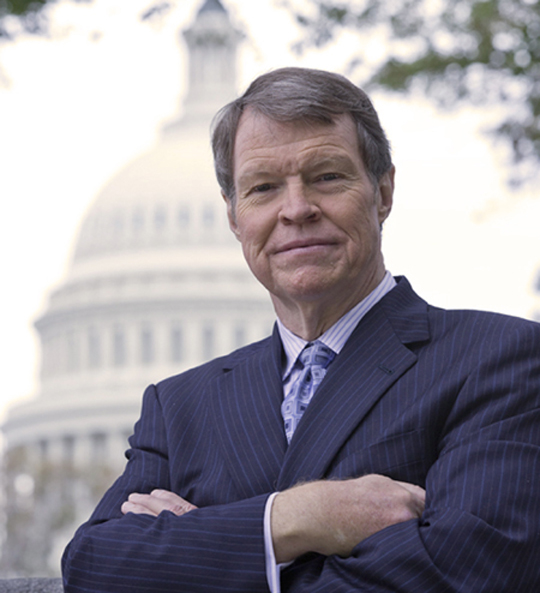
Merrill Matthews, Ph.D., is a resident scholar with the Institute for Policy Innovation, a research-based, public policy “think tank.” He is a health policy expert and opinion contributor at The Hill. He also serves on the Texas Advisory Committee of the U.S. Commission on Civil Rights.
Dr. Matthews is a past president of the Health Economics Roundtable for the National Association for Business Economics, the largest trade association of business economists. Dr. Matthews also served for 10 years as the medical ethicist for the University of Texas Southwestern Medical Center’s Institutional Review Board for Human Experimentation, co-author of On the Edge: America Faces the Entitlements Cliff, and has contributed chapters to several books, including Physician Assisted Suicide: Expanding the Debate and The 21st Century Health Care Leader and Stop Paying the Crooks (on Medicare fraud).
He has been published in numerous journals and newspapers, including The Wall Street Journal, Investor’s Business Daily, Barron’s, USA Today, Forbes magazine and the Washington Times. He was an award-winning political analyst for the USA Radio Network.
Dr. Matthews received his Ph.D. in Humanities from the University of Texas at Dallas.
How Two States Cut Medicaid and Saved Money
States are looking for ways to reduce their exploding Medicaid spending. Two states, Illinois and Pennsylvania, found a way to do just that: by examining their Medicaid and welfare rolls and removing people who don't belong.
Energy Issues Were a Big Win In Last Week's GOP Wave
While the economy may have been voters' primary concern and the president's health care law second, energy issues played a key role, especially in those states that gave Republicans control of the Senate.
Benefit of Pensions Shown to Be Widespread
Determining how much of the increase in health-care premiums can be attributed to the ACA is tricky, IPI reports. Increases are based on actuarial estimates which are educated guesses about factors including the estimated ratio of sick and healthy people in a particular insurance pool, the normal growth in health-care costs, and government regulations.
Obamacare as Metaphor for Obama
The rollout of Obamacare had a lot in common with the "rollout" of Barack Obama's presidency. Both encouraged high expectations, promised impressive deliverables, and tried to reinstill faith in big government. And both utterly failed.
Obama's Vetoed The Fewest Number of Bill in 160 Years -- But Why?
Obama has vetoed exactly two bills in six years, according to a summary of vetoed bills tracked by the U.S. Senate. By contrast, Bill Clinton vetoed 37 bills.
Republicans Can Easily Get Rid Of One of The Worst Parts About ObamaCare
Republicans won’t be able to repeal Obamacare as long as President Obama is in office, but they can make a big dent in one of its most egregious and unconstitutional flaws: Simply eliminate the penalties for not having coverage.
Reversing the Medicaid Tidal Wave in Illinois
Every state is struggling with the explosive growth and cost of its Medicaid program. Illinois, however, found a way to reduce Medicaid spending significantly, freeing up money for other important projects—or better yet, tax cuts.
Oops! Texas Is Getting Redder, Not Bluer
One of the biggest disappointments for Democrats had to be Texas. They had boots on the ground, lots of money, a believable narrative, great candidates and big hopes for a blue future—and Texas got even redder.
The Real Culprit Behind Voter Suppression Is Voter Apathy
Voter turnout will likely be low in this mid-term election; only a little more than a third of voters will take the time and effort to vote. But it will have nothing to do with voter ID laws or voter suppression and everything to do with apathy.
If You Do Not Currently Live In A Red State, You Probably Will Soon
Voters around the country are concluding “it’s better to be red than dead”—applying a whole new, and much better, meaning to an old phrase.






